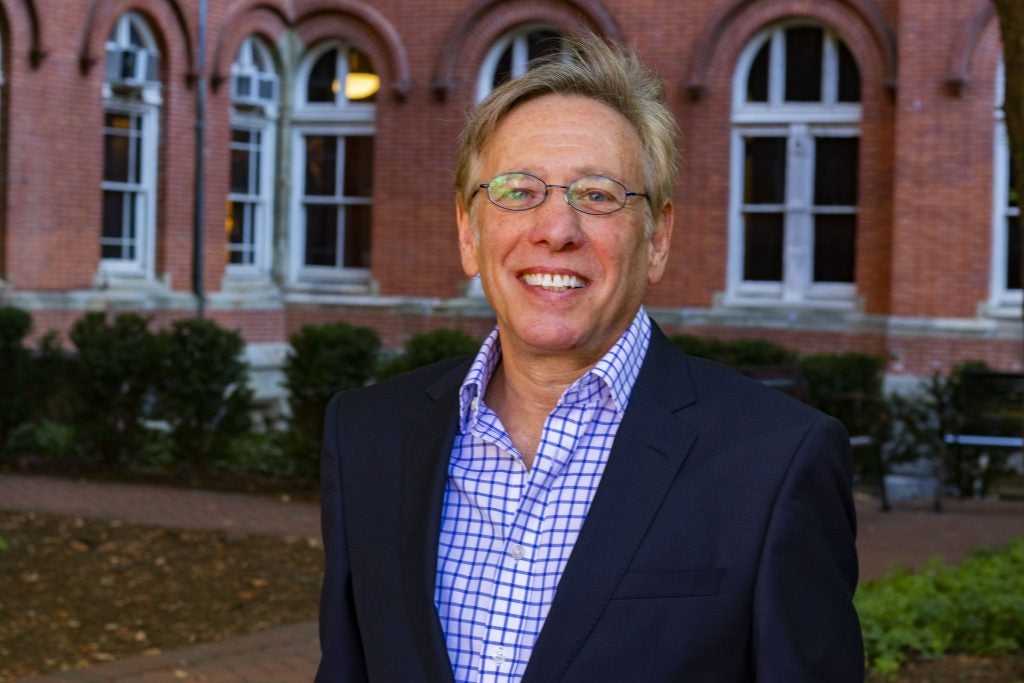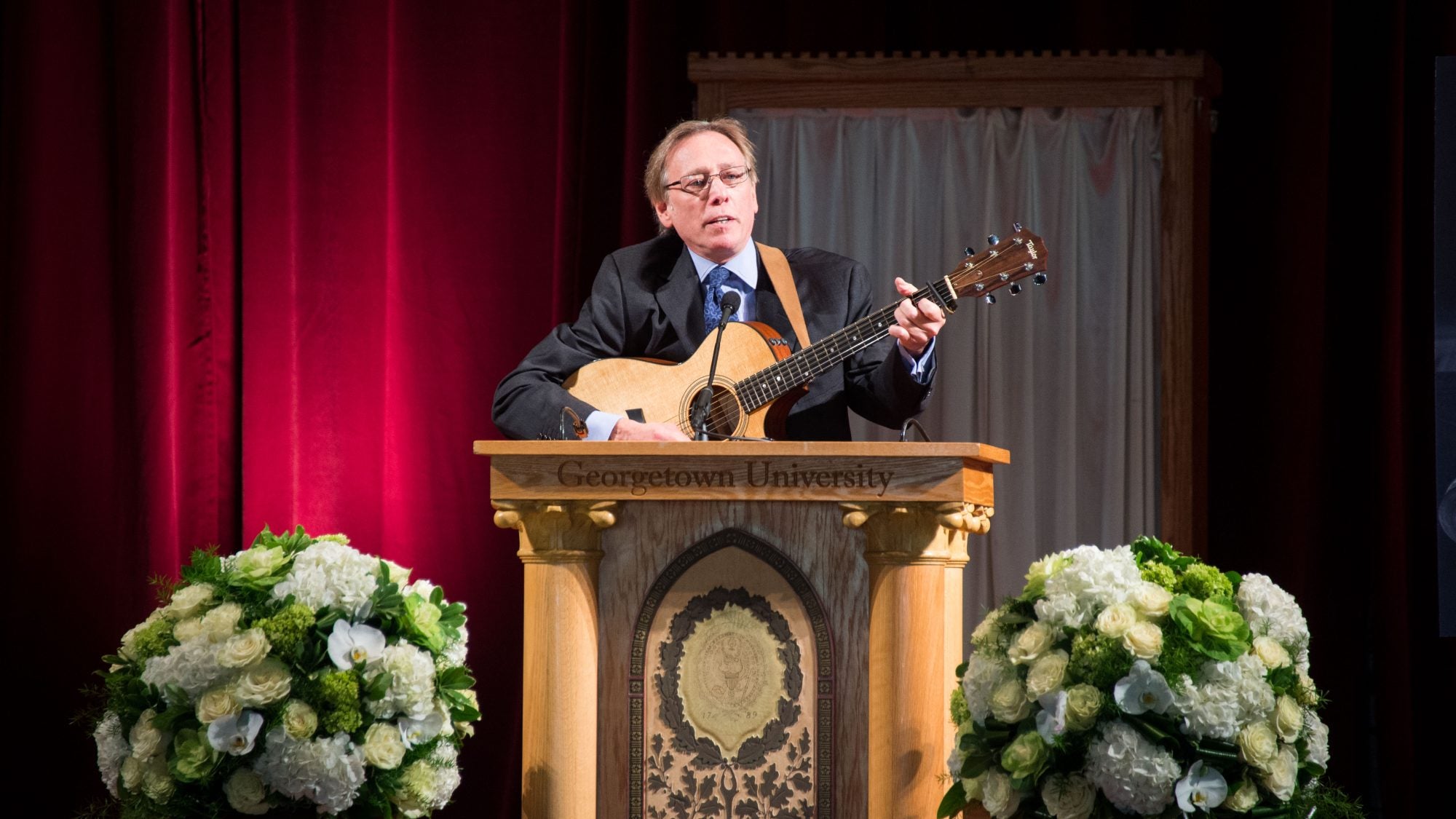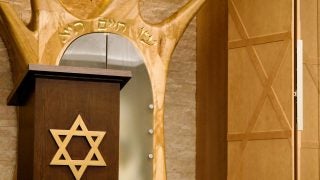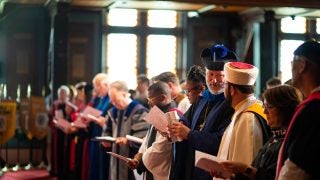On the morning of Yom Kippur, the Day of Atonement and the holiest day of the Jewish year, Jonathan Strum (G’85) rests his voice. He turns on Leonard Cohen, drinks some tea with honey and eats his final meal before the fast starts. He doesn’t want to be full while chanting.
That evening and the next day, Strum will be singing, chanting and blowing the shofar, a traditional ram’s horn instrument used on High Holidays, for hours at Georgetown’s Yom Kippur services. By now, he’s used to it.
“It’s one of the world’s greatest gigs,” he said. “I like to sing. Generally, the congregation doesn’t leave. And I like it when people come up and say, ‘It’s been great. We’ve been here for 20-30 years.’”
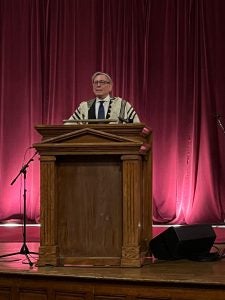
Strum has sung at Georgetown’s High Holy Days services for 40 years. He began serving as cantor in 1984, while earning his master’s in international law at Georgetown Law. Strum had just moved to Washington, DC, and wanted to meet fellow members of the Jewish community. He reached out to the university’s Jewish chaplain and has worked with every single one since.
“One thing led to the other, and 40 years later, I’m still there doing it. At one point we were the largest service in Washington.”
Georgetown has hosted Jewish High Holy Days services for the public, drawing public officials, alumni, students, faculty, staff and Washingtonians. Strum remembers decades when Gaston Hall was standing room only — nearly 1,200 would attend services for Yom Kippur. He remembers getting recognized at synagogues, the supermarket and once at the Shanghai airport. Attendees and friends have even asked him to officiate or sing at their weddings.
Strum has no voice training other than singing in a rock n’ roll band in high school. But singing has become a central part of his identity. And he has no plans to quit.
“I stayed at Georgetown because I considered this to be a major service of mine to the Jewish community,” he said. “I stayed because it was important to me. There needed to be a place where Jews were welcome for High Holiday services without planning and without tickets — and Georgetown has allowed us to do that.”
During Yom Kippur, Strum often started a verse and then stayed silent while the congregation sang together. He listened to the audience united in a prayer of praise. His eyes welled up, as they always do.
“It’s miragesh,” he said. “In Hebrew, it [means] emotive. To feel. When you hear a hundred people or a thousand people singing together, it’s moving.”
